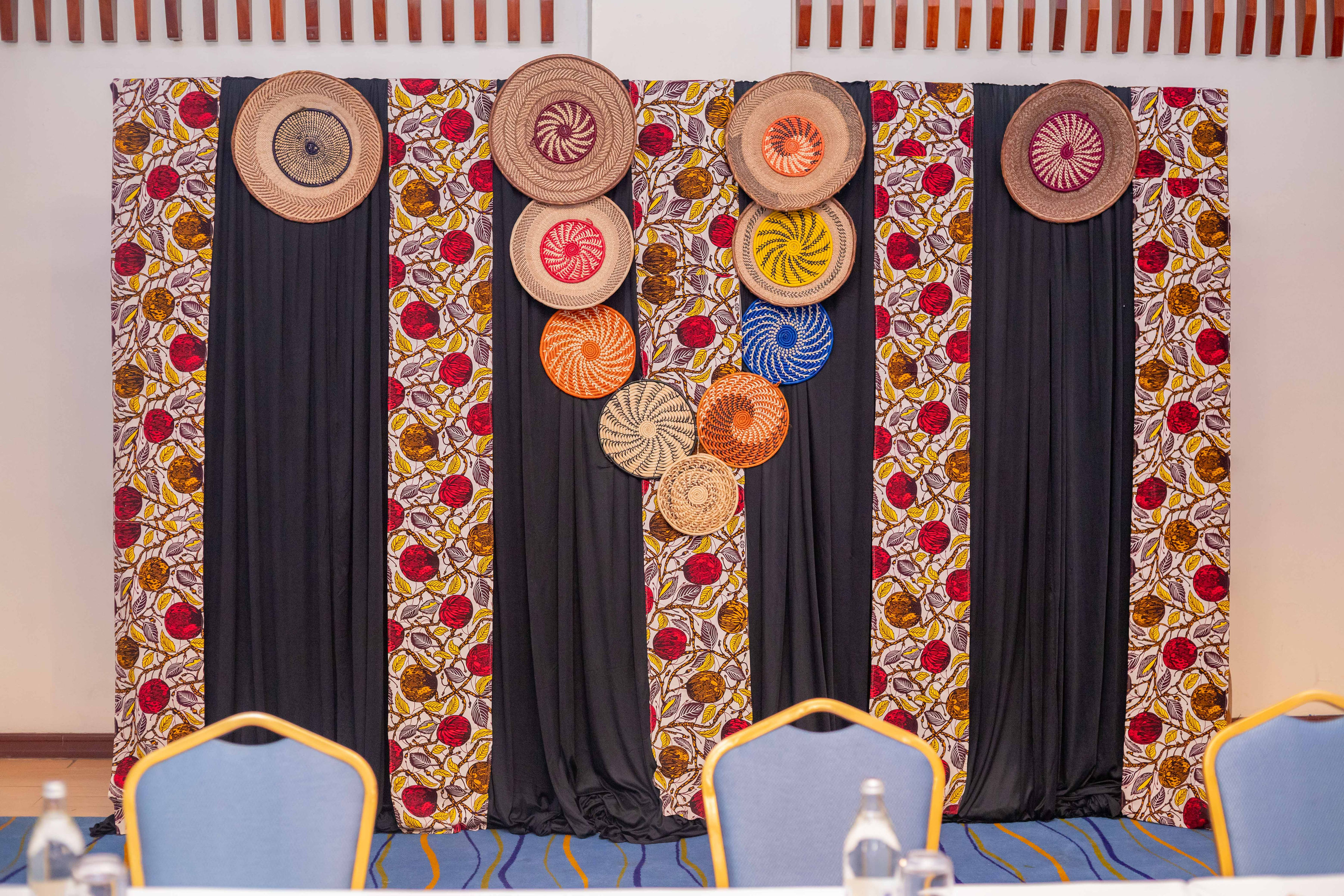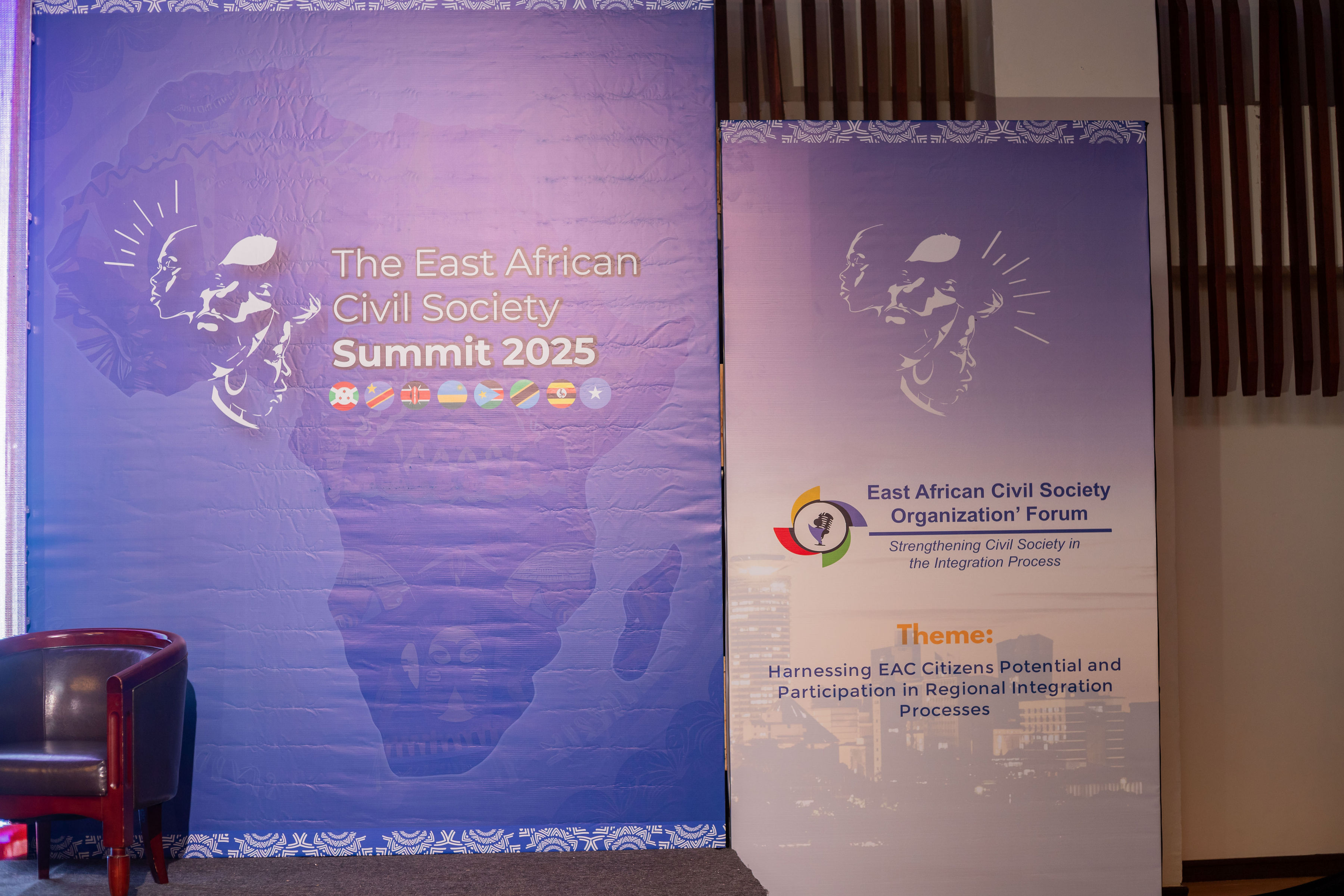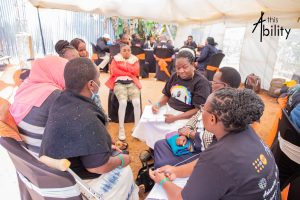Workshop on Access and Availability of Medicines for Persons with Disabilities, Women, and Girls
The East Africa Civil Society Summit 2025, held in Nairobi, Kenya, brought together key stakeholders from across the region to strengthen citizen participation in the East African Community (EAC) integration process. Organized by the East African Civil Society Organizations’ Forum (EACSOF), this three-day, citizen-centered event was themed “Harnessing EAC Citizens’ Potential and Participation in Regional Integration Processes,” with a sub-theme “Innovating for Regional Integration: Advancing Governance, Economic Growth, and Social Inclusion in the Digital Age.”

The Summit featured high-level plenaries, interactive panel discussions, and practical workshops aimed at generating citizen-led solutions to advance inclusive governance, economic empowerment, and social development in the region.
This Ability Trust’s Contribution
At the heart of these deliberations was a critical workshop on Access and Availability of Medicines for Persons with Disabilities, Women, and Girls, led by This Ability Trust’s Managing Trustee, Lizzie Kiama.
During her presentation, Lizzie emphasized the urgent need to address systemic inequalities in sexual and reproductive health (SRH) and essential health commodities for marginalized populations. Her session underscored that equitable access to health commodities is key to advancing Sustainable Development Goal 3 (Good Health and Well-being) — particularly the targets on universal health coverage and reducing inequalities in health outcomes.
The Urgency of Inclusive Health Access
Globally, over one billion people live with disabilities, yet their sexual and reproductive health and rights (SRHR) remain severely neglected. Women with disabilities face up to three times higher unmet SRH needs compared to their non-disabled peers. In East Africa, studies show that only 42% of essential SRH commodities are consistently available — a figure that highlights significant accessibility and equity gaps.
These disparities are fueled by weak supply chains, inconsistent policies, limited disaggregated data, and financial and infrastructural barriers that exclude persons with disabilities from healthcare access. The COVID-19 pandemic further exposed these systemic weaknesses, with a 54% decline in antenatal visits recorded during the crisis, disproportionately affecting women and girls with disabilities who were largely excluded from emergency planning and decision-making structures.

Key Insights and Recommendations
The workshop discussions explored several interlinked challenges affecting equitable access to essential health commodities and proposed holistic solutions to advance inclusion across the EAC region. Participants noted that existing SRHR policies often lack provisions addressing the specific needs of persons with disabilities, leading to inconsistencies between regional and national frameworks. To close these gaps, the workshop called for the development of model guidelines that integrate disability and gender considerations into all SRHR legal and policy frameworks, the institutionalization of participatory consultations with Organizations of Persons with Disabilities (OPDs), and the establishment of dedicated budget lines for accessible SRHR commodities such as braille-labeled contraceptives and menstrual products.
Discussions also highlighted affordability concerns, where high taxation, limited health insurance coverage, and weak supply chains increase costs for essential medicines. Participants recommended the harmonization of regional pricing and procurement policies across EAC Member States, the establishment of subsidy programs for vulnerable populations, and the strengthening of community-based health financing mechanisms to reduce out-of-pocket costs.
Information accessibility was another critical theme. Participants emphasized that SRHR information must be made available in accessible formats — including braille, audio, sign language, and easy-to-read versions — and translated into local languages to improve comprehension and uptake. The EAC was urged to adopt a Regional Disability-Inclusive Health Policy aligned with the African Disability Rights Protocol, supported by sustained funding for inclusive communication and awareness campaigns.
Accountability and transparency emerged as vital enablers for effective service delivery. The workshop called for investments in digitalized and interoperable data systems to capture disaggregated information by gender, age, and disability. Strengthening partnerships with civil society and Organizations of Persons with Disabilities was also recommended to monitor distribution chains and hold duty bearers accountable for equitable health commodity distribution.
The role of civil society organizations (CSOs) was underscored as critical in bridging service delivery gaps. However, many CSOs face dwindling financial support for SRHR initiatives. Participants proposed the creation of a regional knowledge-sharing hub, multi-stakeholder coalitions, and a coordinated capacity-building program to promote inclusive SRH commodity management and advocacy.
In addition, partnerships and technology were emphasized as key to advancing inclusive healthcare. The EAC was encouraged to ensure meaningful participation of persons with disabilities in SRH policy design, monitoring, and evaluation, while fostering cross-sector collaboration among health, education, gender, and social protection sectors. On the technology front, participants recommended the co-design of health technologies with persons with disabilities, localization of assistive device production to reduce costs, and the expansion of affordable internet connectivity and digital inclusion programs.
Finally, discussions on availability pointed to the urgent need to strengthen local manufacturing capacity and improve data-driven forecasting to prevent stockouts of essential medicines and assistive devices. Increased and ring-fenced budget allocations for the procurement of reproductive health commodities were proposed to ensure consistent supply and equitable access, particularly for women, girls, and persons with disabilities in rural and marginalized areas.

Toward a More Inclusive East Africa
This workshop was more than a dialogue—it was a call to action. Participants collectively voted for policy recommendations to be presented to the EAC Secretariat, urging adoption and implementation at the regional level. These recommendations aim to build resilient, inclusive, and equitable health systems that prioritize persons with disabilities, women, and girls—especially in times of crisis.
As This Ability Trust continues its mission to advance the sexual reproductive health and rights of women and girls with disabilities in Kenya and across the region, our participation in the East Africa Civil Society Summit 2025 reinforces our commitment to shaping a future where no one is left behind in accessing essential healthcare.
Written By: Nickron Kibunei – ICT Officer, This Ability Trust
